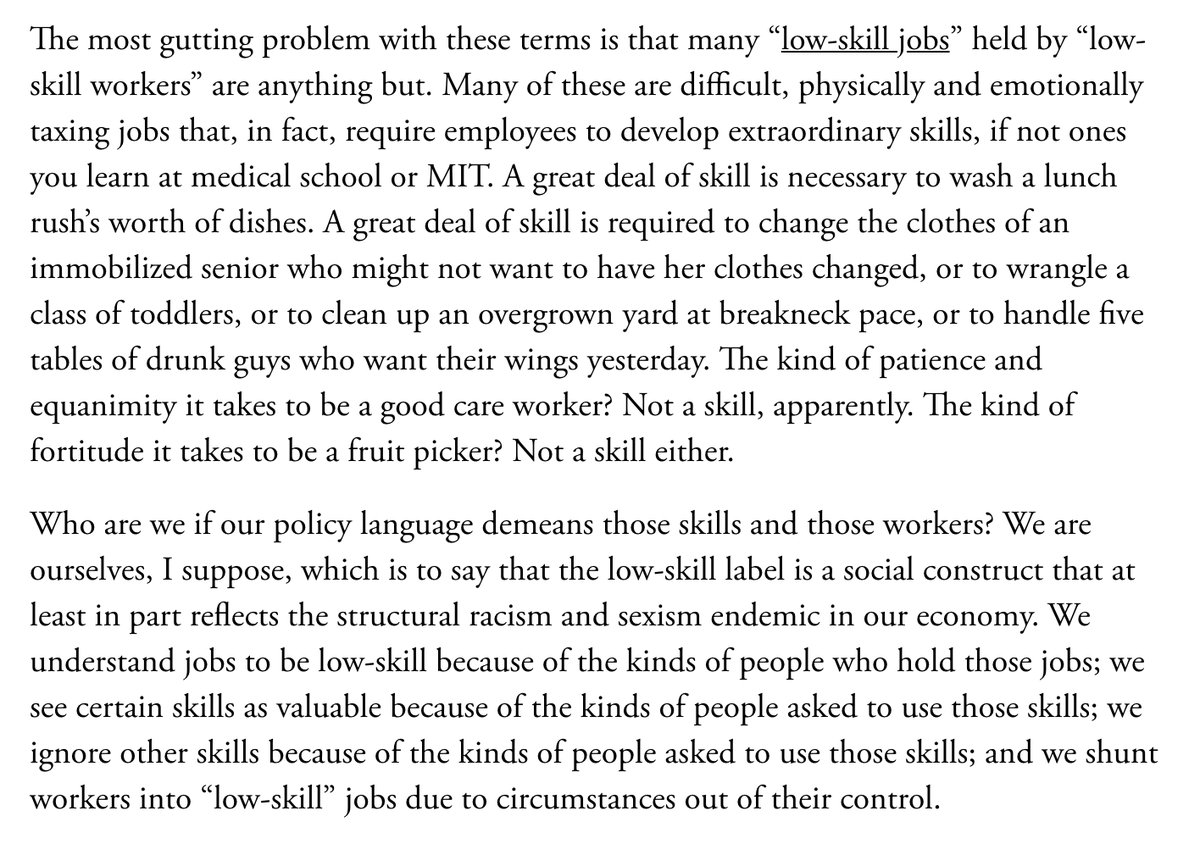I love this @AnnieLowrey jeremiad against the term "low-skill jobs." Those jobs aren& #39;t low-skill. They& #39;re low-wage, and calling them low-skill is a way of blaming often exploited workers for inequality and unemployment. https://www.theatlantic.com/ideas/archive/2021/04/theres-no-such-thing-as-a-low-skill-worker/618674/">https://www.theatlantic.com/ideas/arc...
The idea that a 23-year-old at McKinsey is a high-skill worker while a home healthcare aide with 30 years of experience is low-skill is risible.
The latter may be paid more, but they& #39;re not more skilled. And the language of skills recasts that pay gap as natural, even virtuous.
The latter may be paid more, but they& #39;re not more skilled. And the language of skills recasts that pay gap as natural, even virtuous.
As Annie writes, the point isn& #39;t that we shouldn& #39;t learn different skills as the economy changes. The point is the language of low and high-skilled jobs obscures the realities of power and policy operating behind this debate.
I& #39;ve covered endless rounds of the "skills" debate, which particularly pops up in the aftermath of recessions, when people want to explain high unemployment as more than a failure of fiscal and monetary and labor policy.

 Read on Twitter
Read on Twitter


